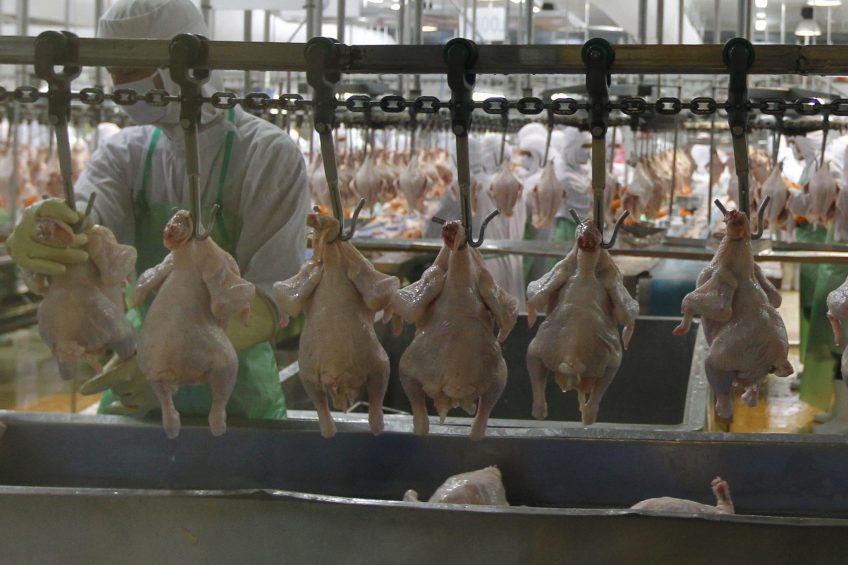Animal welfare groups claim US chicken victory

The US Department of Agriculture has rejected calls by the poultry industry to increase poultry inspection line speeds.
The National Chicken Council petitioned the US Food Safety Inspection Service (FSIS) last September requesting them to implement a waiver system to exempt young processing plants from the regulation that prescribes 140 birds per minute as the maximum line speed limit.
The NCC petition attracted considerable controversy with Mercy for Animals leading a coalition of animal protection organisations, including the Animal Welfare Institute and the Humane Society of the United States, in criticising the petition.
Additionally, the Southern Poverty Law Centre and other leading worker protection groups opposed the NCC petition on the grounds that the changes would endanger poultry workers already operating under dangerous conditions and increase food contamination.
Carcass-by-carcass inspection
In its letter to National Chicken Council president Michael Brown, the FSIS said the poultry industry had “not included data to demonstrate that inspectors can conduct an effective carcass-by-carcass inspection at line speeds faster than those authorised” under the new inspection system.
However, the FSIS said it would continue to allow the 20 poultry processing plants that have already been granted waivers to operate at line speeds of up to 175 birds per minute.
FSIS said it had received around 100,000 mainly on-line comments about the NCC proposals. A number had been sent by the United Food and Commercial Workers International Union who were opposed to the NCC petition.
The National Chicken Council said it was disappointed about the denial of its petition but added it “ was encouraged that there will be a viable path forward in the near future” for poultry plants to ask for increase line speeds through the waiver process.
Vandhana Bala, Mercy for Animals general counsel, said the decision by USDA would prevent additional suffering for billions of chickens each year.
Brutal reality of chicken slaughter
“Our undercover investigations showing the brutal reality of chicken slaughtered have exposed birds scaled alive in hot water tanks and having their heads and legs ripped off, all while conscious and able to feel pain.
“We applaud the USDA for standing up to the chicken industry’s reckless request that would have resulted in more botched slaughter, placing consumers, workers and animals in harm’s way.”
The Southern Poverty Law Centre also welcomed the decision, saying many health and safety problems in poultry processing were rooted in incredibly fast speed lines. Poultry plants consistently out production and profits above worker health and safety, it added.












